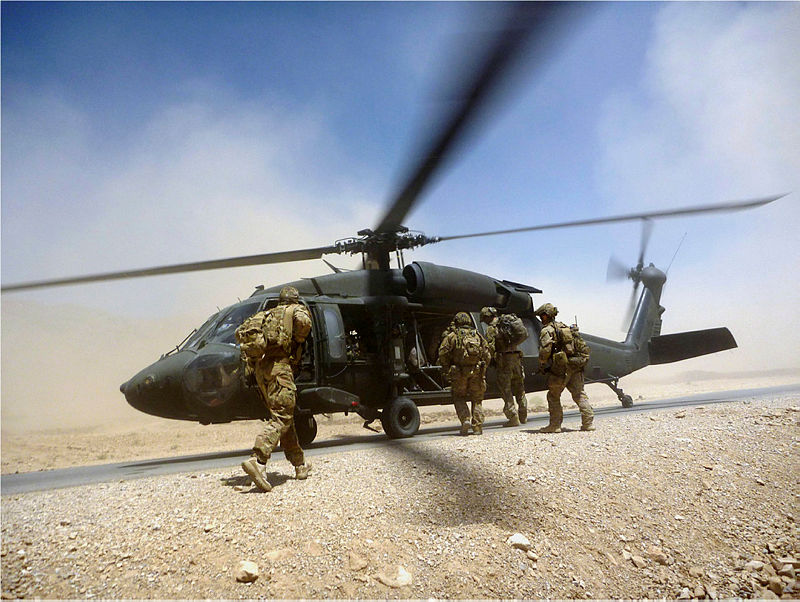
Australians—and not just members of the media—are right to be alarmed about police raids on the ABC and a newspaper journalist’s home.
Every nation has an obligation to safeguard information that might threaten its security.
But a worrying aspect of the raids on the ABC’s Sydney offices is that they appear to be closely related to a parallel investigation into very serious allegations which, if proven, will certainly expose a major national security issue. The raids appear to have been focused on finding the sources of information given to journalists who were investigating allegations that a small number of Australian special forces soldiers killed children and unarmed prisoners in Afghanistan.
If those allegations, now under official investigation, prove to be true and if war crimes have been committed by Australian personnel, then exposing them and preventing them from being repeated is clearly in the national interest. If the allegations prove not to be true, having had an effective investigation is also in the national interest.
In Afghanistan, the ‘OPSEC’ cloak may have contributed to an unintended consequence of making it possible for individuals involved in questionable behaviour to keep it under wraps. Those who did object to actions they considered potentially illegal or immoral could find themselves ostracised or driven out of a unit for betraying their brothers.
But, while there have been repeated dark hints that ‘this is all about jealously’, the reality is that the concerns about the behaviour of some in the special forces were raised by former members of those units who were appalled by what was alleged to have happened.
In 2016, the then special forces commander, Major-General Jeff Sengelman, is understood to have been concerned enough about the persistent allegations to have raised them with Lieutenant General Angus Campbell, who was then chief of the army. General Campbell, now chief of the ADF, is also a former special forces commander.
They commissioned a sociologist, Samantha Crompvoets, to interview soldiers from the special forces and other ADF units and members of agencies who worked with them to assess whether there were serious cultural issues in the units.
Dr Crompvoet’s report confirmed that there appeared to be serious problems with the behaviour of some members of the Special Operations Task Force in Afghanistan that may have extended to unsanctioned and illegal violence.
Journalists had also been made aware of claims which emerged separately from former special forces members that Australians had killed unarmed civilians. In some cases, witnesses within the ADF suffered serious mental health consequences that drove them to leave the ADF or to redeploy within it.
Campbell and Sengelman called in New South Wales Supreme Court judge Paul Brereton, an army reserve officer, to head an inquiry on behalf of the inspector-general of the ADF. Brereton’s initial brief was to separate fact from fiction and to ascertain whether there was truth in the allegations.
In September 2017, Brereton made a public call for anyone with relevant information to come forward. Some former soldiers responded.
His inquiry is expected to continue until late this year, and possibly into next year. It appears that it is no longer about rumours. Serious matters have emerged.
As that investigation quietly progressed, Campbell appointed the former director-general of intelligence and security, David Irvine, to examine what had to be done to strengthen the lines of command and accountability in the special forces.
One issue of concern to the authorities appears to be that the material leaked contained the names of special forces soldiers. But the ABC did not include those names in its reports in what seems to have been responsible journalism cognisant of national security.
As concern and confusion reigned this week over the raids and what they meant for press freedom and the need to protect whistleblowers, acting AFP commissioner Neil Gaughan called a media conference at which he said the police were investigating the fact that top secret and secret information was disclosed to the Australian community. ‘The issue of whether or not the public had the right to know was not an issue that came into the investigation process’, Gaughan said.
Such complaints were made by departmental secretaries, he said. In this case, it was deemed to be likely that an offence had been committed so the police made their independent decision to investigate.
Gaughan said the two people alleged to have been involved in the disclosure of that material to journalists did not avail themselves of the public interest disclosure defence.
The acting commissioner said it was important that people realised that the police were strongly of the view that top secret and secret information must be protected.
The government, and particularly the law enforcement and intelligence communities, relied on top secret and secret information from international partners such as the fellow members of the Five Eyes intelligence-sharing community, the United States, Britain, Canada and New Zealand, to keep the Australian community safe. ‘If we can’t be seen to protect our own internal information, we are concerned the information flow to us dries up.’
Gaughan said the ABC was told in advance that the police were coming.
While Gaughan clearly set out to throw some facts into the mix, another key question that remains is whether the information reported by the journalists is actually top secret, or did they just reveal problems someone might prefer were kept quiet?
Gaughan said If Australia is to continue the decades-old pattern of sending troops on peacekeeping and peacemaking operations, then it faces no more serious national security issue than resolving these war crime allegations and doing so with a level of public transparency and accountability.
They may ultimately be proven or found to be untrue. But seeking to track down and punish those with the courage to raise concerns about unlawful behaviour and the journalists who made the allegations public will only serve to discourage others from exposing any future bad behaviour.
And that is certainly a major national security issue.

